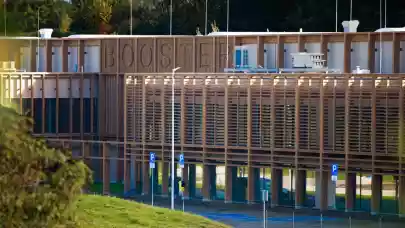
According to experts from Colliers, the Czech real estate market is facing several challenges this year.
First, the gap between ESG-compliant office buildings and those that ignore ESG guidance is widening. The EU-wide Non-Financial Reporting Directive, mandatory for an increasing number of companies operating in the Czech market, has led to a growing interest in sustainability, the circular economy and the social impact of business. For tenants, environmental certifications of the properties they occupy are increasingly important. This is beginning to widen the gap between buildings that meet ESG requirements and those that do not. The latter group may soon find that the market has begun to overlook them.
With construction costs remaining high and financing still complicated, Colliers does not expect many, if any, new speculative office developments in 2024. The lack of new leasing opportunities is pushing prices up, and this has resulted in tenants focusing more often on optimising and utilising leased space more efficiently. This trend is also proving beneficial in achieving tenants' ESG-related objectives.
As a result of slow infrastructure development over the past few decades, the Czech industrial real estate market is facing a shortage of available land suitable for industrial development. The market is further complicated by high rents, unmotivated city governments and expensive labour. The main challenge in 2024 will be to keep key tenants and large employers in the country and not lose them to more aggressive markets in Poland or Hungary. With contracts from stronger, prior economic periods expiring within two years, responsible occupants should initiate the first round of negotiations to secure necessary rental terms and avoid situations where they are disadvantaged and have no alternatives. Things are also complicated by the fact that some parts of the modern industrial market are ageing and will soon need to be modernised or completely refurbished. As with offices, tenants of manufacturing and warehouse buildings must comply with ESG policies. However, implementing related upgrades or renovations could be difficult due to minimal vacancies in the Czech market.
With the pandemic years behind us and Europe's economic situation finally improving after several difficult years, retail brands are facing the challenge of working tirelessly to improve their market position, name recognition and population coverage. This trend was already evident in 2023, but the main wave of expansion should come during 2024. As Prague is already well saturated with shopping centres, developers’ current interest is to focus on the construction of multifunctional buildings in prime locations. Retail parks will also emerge; especially in areas where shopping options are scarce or not concentrated in one place.
Investors get more cautious, they demand quality products. Although prime equity yields have moved up 125 basis points over the past 18 months to 5.00-5.25%, Colliers believes they could rise by as much as another 50 basis points to help bridge the price gap and attract more investors to commit capital. Still, the outlook for 2024 is rather pessimistic in terms of deal volume and similar to that of 2023. The price disparity between buyers and sellers will continue to persist. The price gap could narrow in the second half of this year as more owners look to recycle proceeds and trade buildings.
In the residential segment mortgage volumes are expected to rise again and the challenge is that housing prices could rise with them. The mortgage market is likely to grow again this year after a sharp year-on-year decline in volume. However, given the persistent housing shortage, prices in the primary housing market can be expected to remain stable or even rise in some locations.



